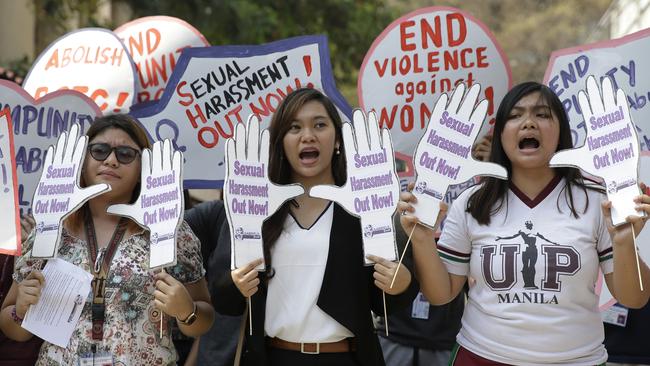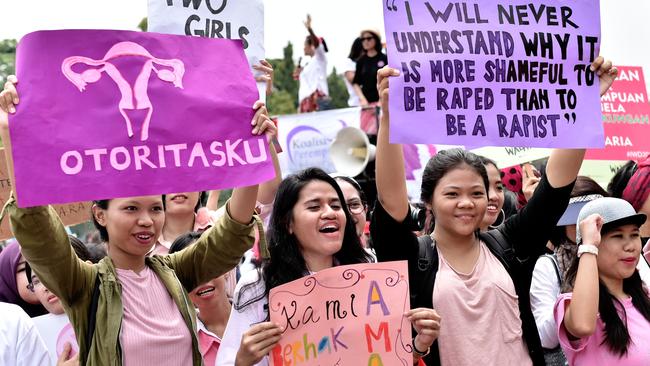Of course we need Women’s Day. Here’s why
Feminism has achieved much in the past century and International Women’s Day celebrates these gains but we are still a long way from true equality, writes Mary Barry.

Rendezview
Don't miss out on the headlines from Rendezview. Followed categories will be added to My News.
On International Women’s Day, many of us gear up to come together and celebrate progress for women around the world and to reflect on the challenges that lie ahead for true equality.
There are still, however, a few vocal commentators who ask why the day is still relevant in 2017 because, “stop moaning ladies” we have gender equality in Australia don’t we? No. Not even close.
International Women’s Day is still relevant because in Australia today:
— Women earn 18.8 per cent less than men working fulltime.
— Of all CEOs in Australia, less than one in five are women. Of all Chairs of organisations, only one in 10 are women.
— If women and men move through managerial positions at the same pace, men can expect to earn $2.3 million and women $1.7 million in base salary over this period — a difference of $600,000.
— Mothers spend twice as many hours (eight hours and 33 minutes) each week looking after children under 15, compared to fathers (three hours and 55 minutes).
— One in four women has experienced violence from a current or former male partner.
— Nine in 10 young women have been sexually harassed on the street in the past 12 months.
— The biggest risk factor in becoming a victim of sexual assault, domestic or family violence is being a woman.
Australia ranks only 46 of the world’s nations according to the current World Economic Forum’s Global Gender Gap Index, down from 36 last year. In 2006, we ranked 15th in the world for gender equality. We are slipping.

But for many Australian women, participating in International Women’s Day is also about showing solidarity with women worldwide and highlighting gender inequality as a global issue.
It’s a recognition for example, that globally, the number of women living in a relationship characterised by violence now outstrips the number of people who are malnourished. That’s 980 million women. That’s the population of Australia multiplied more than 42 times, all living in fear.
Yes, much progress has been made in the past century and International Women’s Day is a time to celebrate these gains and to praise the acts of courage and determination by ordinary women around the world that have made them possible. And it’s a time to remember that equality must be delivered for ALL women worldwide, not just western women and not just white, middle class, able bodied women. It’s a time to acknowledge that in this respect, there is still a long way to go.

In Australia, one of the most glaring areas of remaining and significant inequality is the far higher rates of violence experienced by Aboriginal and Torres Strait Islander women compared to non-indigenous women. Aboriginal and Torres Strait Islander women are 35 times more likely to end up in hospital because of a family violence related assault than other Australian women; and twice as likely to die as a result of family violence.
The number of indigenous women affected by violence should be the same as the number of non-indigenous women. Both should be zero.
The gap between men and women’s income for working the same job should also be zero. As should the number of women sexually harassed on the street or at work.
We all have a role to play in preventing violence against women and their children. Evidence overwhelmingly indicates that gender inequality is the core of the problem and gender equality is the heart of the solution.
What better day to remind us of this big but achievable goal than International Women’s Day.
Mary Barry is CEO of Our Watch, the national organisation to prevent violence against women and their children.


